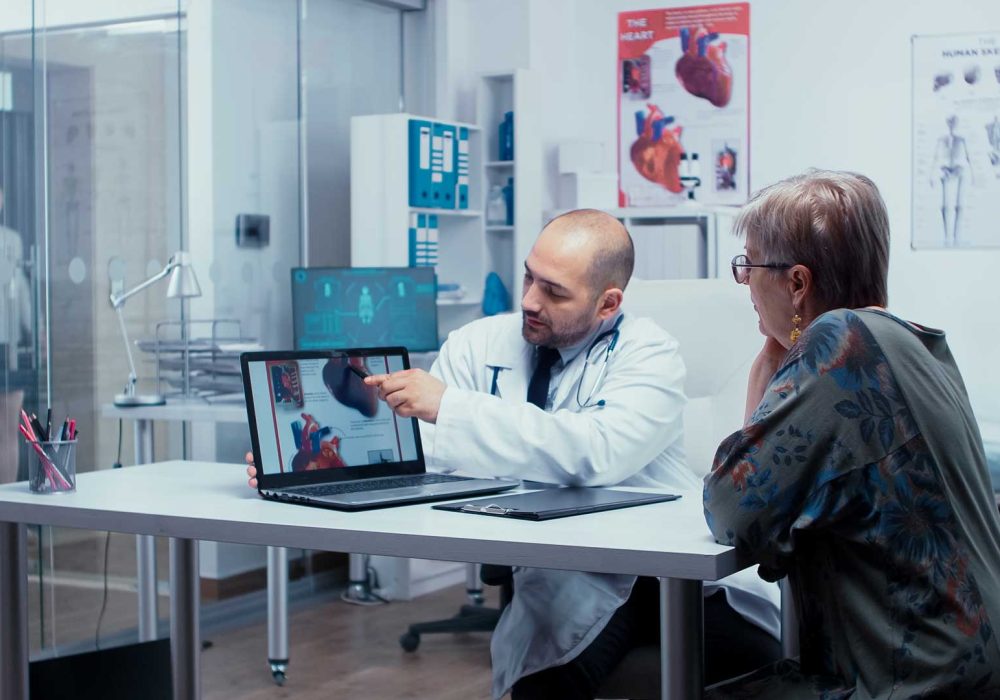
Urology & Nephrology

Urology & Nephrology
PCRI Hospital’s Urology and Nephrology Department is dedicated to providing comprehensive care for patients with conditions related to the urinary tract, kidneys, and related organs. Our team of experienced urologists and nephrologists offers a wide range of diagnostic and treatment options for a variety of conditions.
Urology Services
- Kidney Stones: Diagnosis and treatment of kidney stones, including shock wave lithotripsy (SWL), ureteroscopy, and percutaneous nephrolithotomy (PCNL).
- Prostate Health: Evaluation and treatment of prostate conditions such as benign prostatic hyperplasia (BPH), prostate cancer, and prostatitis.
- Urinary Tract Infections (UTIs): Diagnosis and treatment of UTIs, including recurrent infections and antibiotic resistance.
- Erectile Dysfunction: Evaluation and treatment options for erectile dysfunction, including medications, penile implants, and other therapies.
- Incontinence: Evaluation and treatment of urinary incontinence, including bladder training, medications, and surgical options.
- Urological Cancers: Diagnosis and treatment of urological cancers, such as bladder cancer, kidney cancer, and prostate cancer.
Nephrology Services
- Chronic Kidney Disease (CKD): Management of CKD, including monitoring kidney function, managing symptoms, and exploring treatment options such as dialysis or transplantation.
- Acute Kidney Injury (AKI): Diagnosis and treatment of AKI, including identifying the underlying cause and providing supportive care.
- Kidney Stones: Prevention and treatment of kidney stones, including dietary changes, medications, and surgical interventions.
- Dialysis: Provision of hemodialysis and peritoneal dialysis services for patients with end-stage renal disease.
- Kidney Transplantation: Evaluation and management of patients for kidney transplantation.
At PCRI Hospital, our urologists and nephrologists are committed to providing compassionate and effective care for patients with a wide range of urinary tract and kidney conditions. We utilize the latest advancements in medical technology and treatment techniques to ensure the best possible outcomes for our patients.
Approach
Approaching the Urology and Nephrology Department at PCRI Hospital
Here’s a general approach you can follow:
1. Consult Your Primary Care Physician:
- Discuss your symptoms or concerns related to your urinary tract or kidneys with your primary care physician.
- They can assess your condition and determine if a referral to a urologist or nephrologist is necessary.
2. Schedule an Appointment:
- Once you have a referral, contact the Urology and Nephrology Department at PCRI Hospital to schedule an appointment.
- Be prepared to provide your insurance information and any relevant medical records.
3. Prepare for Your Appointment:
- Make a list of your current medications and dosages.
- Note any allergies or sensitivities you may have.
- If you have recent test results (e.g., blood tests, urine tests, imaging studies), bring copies with you.
4. During Your Appointment:
- Be prepared to discuss your symptoms in detail, including:
- Pain or discomfort in your back, sides, or groin
- Changes in urination patterns (frequency, urgency, difficulty, etc.)
- Blood in your urine
- Swelling in your legs or ankles
- Fatigue
- The urologist or nephrologist will conduct a physical examination and may order additional tests to diagnose your condition.
5. Following Up:
- After your appointment, follow the doctor’s instructions carefully.
- Attend any follow-up appointments as scheduled.
- If you have any questions or concerns, don’t hesitate to contact the department.
Remember: Early detection and treatment can significantly improve outcomes for many urological and nephrological conditions. If you’re experiencing any symptoms related to your urinary tract or kidneys, it’s important to seek medical attention promptly.
A kidney stone is a hard deposit that forms in the kidney from minerals and salts in urine.
What are the symptoms of prostate cancer?
Symptoms of prostate cancer can include difficulty urinating, frequent urination, weak urine flow, blood in the urine, and pain in the pelvic area.
Erectile dysfunction is the inability to achieve or maintain an erection.
What is chronic kidney disease (CKD)?
Chronic kidney disease is a progressive condition where the kidneys gradually lose their ability to function properly.
What are the symptoms of acute kidney injury (AKI)?
Symptoms of AKI can include decreased urine output, swelling in the legs or ankles, fatigue, nausea, and shortness of breath.
Dialysis is a procedure that filters waste products and excess fluid from the blood when the kidneys are no longer functioning properly.
Opening Hours
Mon – Fri
24 HOURS
Sat – Sun
24 HOURS
Make Your Appointment
Get Free Medical Consultation, Call 08622-256779
-
1-53 Srinagar Chinnapadugupadu, before NH-67 NTS Railwaygate Nellore-524137 Andhra Pradesh India -
08622-256779
-
+917989692626
-
info@pcripl.com
Stay Connected
Youtube
Facebook
Instagram
Twitter
